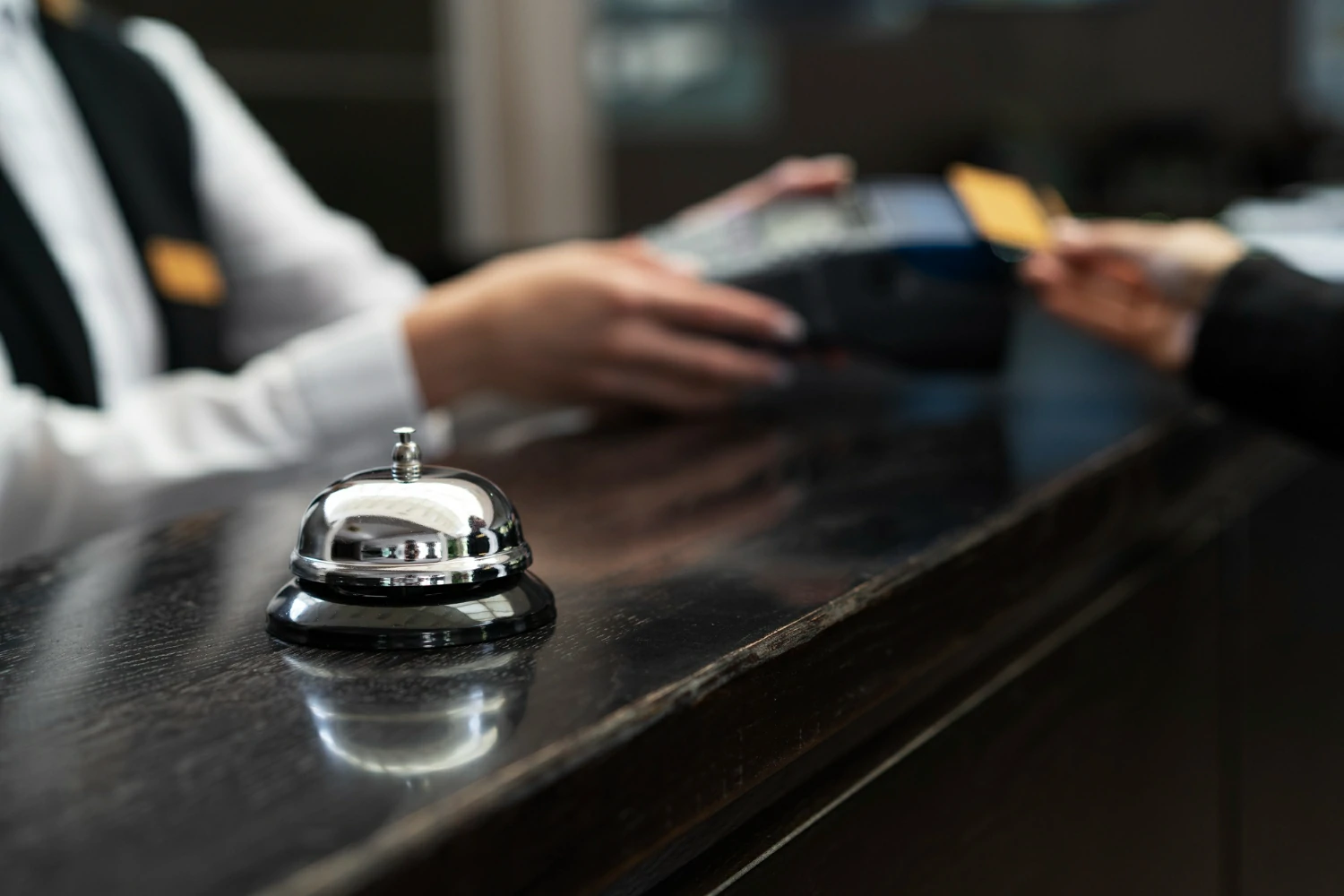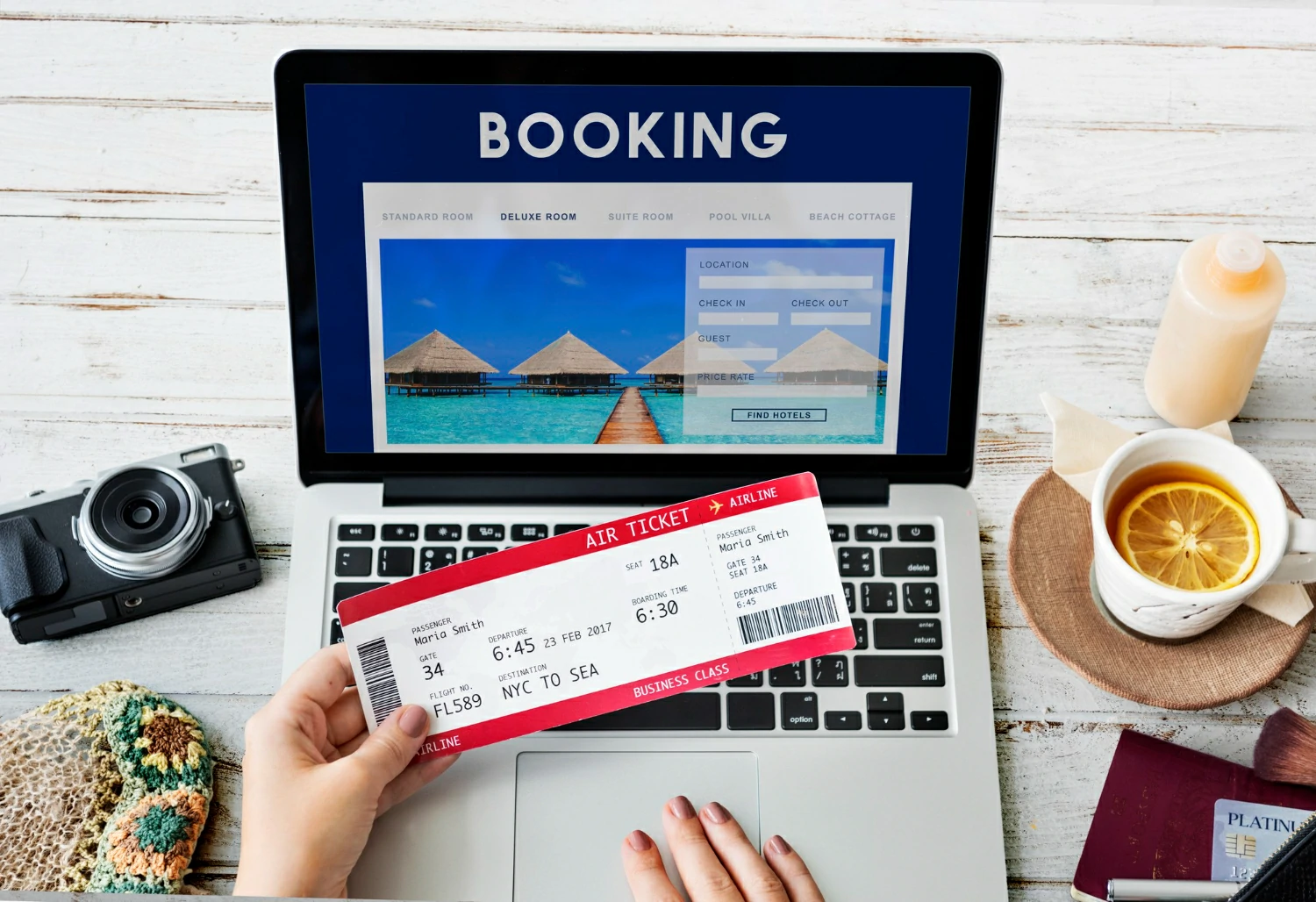Can You Book a Hotel at 16? Answer is –The ability to book a hotel at 16 years old depends heavily on location, hotel policies, and specific circumstances. In most places, the standard minimum age requirement is 18, as this aligns with the legal age of entering into a contract. However, some hotels may allow 16-year-olds to stay if accompanied by a parent or guardian, or with written parental consent. It’s always best to research state laws and contact the hotel directly to confirm their policy before attempting to book.
Summary
- The legal age to book a hotel room is generally 18.
- Age restrictions stem from legal contract requirements.
- Some hotels might make exceptions with parental consent or if a guardian is present.
- State laws can impact age restrictions for hotels.
- Always verify a hotel’s age policy before booking.
Can You Book a Hotel at 16?

Whether it’s pursuing an exciting opportunity, attending a special event, or simply craving a change of scenery, the desire to travel can strike at any age. However, if you’re 16 years old, finding suitable hotel accommodations can be a surprisingly complex challenge.
Age restrictions, legal hurdles, and varying hotel policies can make booking a room feel like an impossible task. Let’s explore why this is such a hurdle for young travelers.
The Age of Majority
In most parts of the world, the legal age of majority is 18. This means that until you reach this age, you’re considered a minor and cannot legally enter into binding contracts.
Hotels, like any business, rely on contracts to ensure payment, protect their property, and limit their liability.
Since a minor can’t be held fully responsible, many hotels are understandably hesitant to rent rooms to those under 18.
Can You Book a Hotel at 16?
1. The Standard Age Requirement
In most countries, the standard minimum age requirement to book a hotel room independently is 18 years old.
This age aligns with the legal age of majority in many places, meaning it’s the point at which an individual is considered an adult with full capacity to enter into contracts and take on legal responsibilities.
2. Reasons Behind the Restriction
There are several compelling reasons why hotels maintain this age restriction:
Legal Contracts: The core function of a hotel booking is a contractual agreement. The guest agrees to pay for the room and abide by hotel rules, while the hotel agrees to provide lodging and amenities. Minors cannot be held fully accountable for breaches of contract. This leaves hotels vulnerable should a guest under 18 cause property damage, fail to pay, or violate hotel policies.
Liability: Hotels have a responsibility to ensure the safety and well-being of their guests. If an unaccompanied minor encounters an accident, medical emergency, or is even a victim of a crime on hotel premises, the hotel could face significant legal liability. By restricting bookings to adults, hotels mitigate this risk.
Protecting Other Guests: Hotels strive to maintain an environment that’s comfortable for all their guests. While many teenagers are responsible, there is a perception that unsupervised groups of younger individuals could potentially lead to disruptions, noise complaints, or even property damage.
Upholding Reputation: Hotels work hard to cultivate their image and reputation. Incidents involving underage guests have the potential to negatively impact their standing, particularly if it leads to negative reviews or media attention.
Ways to Book a Hotel as a Minor

While age restrictions might present an obstacle, they don’t make securing hotel accommodations impossible for minors. Here are some viable options:
1. Traveling with an Adult
The most straightforward solution is to travel with a parent, legal guardian, or another responsible adult over the age of 18 (sometimes 21, depending on the hotel).
The adult can book the room under their name and assume full responsibility during the stay. This eliminates the contractual concerns for the hotel and allows you to stay as their guest.
Tips
- Some hotels may require proof of your relationship with the adult, such as a birth certificate. Check their policy beforehand.
- Be sure the adult you’re traveling with is fully aware of all your plans and is comfortable supervising you for the duration of the trip.
2. Parental Consent
If you need to travel independently, some hotels may allow you to book a room with written parental consent.
This usually involves:
Notarized Letter: A notarized letter from your parents or legal guardians granting permission for you to stay at the hotel. The letter should include your full name, dates of stay, hotel contact information, details about the purpose of your trip, and confirmation that your parents will cover all expenses.
Security Deposit: Hotels may require a larger security deposit held against a parent’s credit card to cover potential damages.
Restrictions: Even with consent, some hotels might place limitations on amenities like room service, or accessing the pool and gym without an adult present.
3. Hotel-Specific Policies
Not all hotels have a rigid 18+ policy. Some, especially those in the following categories, may be more accommodating to underage guests:
Youth-focused accommodations: Hostels often cater to younger travelers and can have more flexible age policies. Research youth hostels in your desired location.
Independent Hotels: Smaller, independent hotels or bed-and-breakfasts may have more leeway than large chain hotels when it comes to age restrictions.
Destination-specific exceptions: Resort areas or cities with events attracting younger crowds might have hotels accustomed to handling underage guests (with certain safeguards in place).
Important Considerations

1. State Laws
While 18 is the general standard for hotel bookings, there is some variability in state and local laws regarding the legal rights of minors.
These differences might influence a hotel’s willingness to accept underage guests.
Emancipation of Minors: In certain states, minors who have been legally emancipated are considered adults in the eyes of the law. If you are emancipated, this dramatically changes your ability to book a hotel. Be sure to carry documentation of your emancipation status.
Age of Consent Exceptions: A few states may have specific exceptions within their age of consent laws that give some rights to those slightly under 18. It’s highly advised to consult a legal professional if you believe this might apply to your situation, as it’s a complex area of the law.
Local Ordinances: Some cities might have their own ordinances relating to youth curfews or restrictions on unsupervised minors in public places.
2. Hotel Chains vs. Independent Hotels
Larger hotel chains often have strict, company-wide policies regarding minimum age requirements. This is due to standardization and minimizing liability across all their properties.
Independent hotels, on the other hand, typically have more flexibility to set their own rules.
3. Purpose of Your Stay
The reason for your travel can sometimes influence a hotel’s willingness to accommodate you. Here’s why:
- Organized Events: If you’re attending a school trip, conference, or sports competition, the event organizers might have pre-arranged accommodations at designated hotels. These hotels would be more accustomed to having younger guests and may have procedures in place for it.
- Specific Circumstances: If you have a compelling reason for needing independent lodging, such as a medical appointment or a family emergency, some hotels may be more sympathetic. Explain your situation clearly, and be prepared to provide any supporting documentation.
Alternatives to Traditional Hotels

1. Hostels
Hostels are a fantastic option for younger travelers seeking budget-friendly lodging and a social atmosphere. They often have more relaxed age policies than traditional hotels. Here’s why they’re a good choice:
Shared Accommodation: Hostels primarily offer dormitory-style rooms with bunk beds, providing a communal experience where it’s easy to meet fellow travelers.
Age-friendly: Many hostels cater to a young, backpacker crowd, making them a natural fit for those under 18.
Amenities: Some hostels have kitchens, common areas, and organized activities, fostering a sense of community.
Important Considerations:
- Some hostels may have a minimum age of 16. Always check their policy beforehand.
- If you value privacy, hostels might not be the ideal choice.
- Look for hostels with good security measures, especially if traveling alone.
Resources:
2. Short-Term Rentals
Platforms like Airbnb and Vrbo offer a wide range of short-term rental options, from private rooms in someone’s home to entire apartments and houses. This can be a viable solution for underage travelers, especially with parental involvement.
Parental Approval and Supervision: If your parents are supportive of your trip, they can book the rental under their name and potentially stay with you, or arrange for another trusted adult to supervise.
Flexibility: Short-term rentals offer a home-away-from-home experience with amenities like kitchens and living spaces.
Things to Consider:
- Policies on minors vary between hosts, so clear communication is essential.
- Reviews are crucial; prioritize rentals with positive feedback and a proven track record.
Resources:
3. Staying with Friends or Relatives
If feasible, this is often the easiest and most comfortable solution. Consider whether you have friends or extended family in your desired location who would be willing to host you.
Familiar Faces: Staying with people you know provides a safe and supportive environment.
Local Knowledge: Your hosts can be invaluable guides, offering insider tips on the area.
Important:
- Always discuss your plans thoroughly with your parents and the friends/relatives involved.
- Be respectful of their house rules and express your gratitude for their hospitality.
Tips for Minors Seeking Hotel Rooms

1. Plan Ahead
The earlier you start your search, the better your chances of finding the right accommodation. This allows for:
- Take the time to explore different hotel options (chains, independents, hostels), compare policies, and understand the nuances of booking as a minor.
- Reach out to potential hotels weeks or even months in advance to inquire about their age restrictions and any potential workarounds.
- If traditional hotels are proving too restrictive, you have ample time to consider short-term rentals, youth hostels, or staying with friends/family.
2. Contact the Hotel Directly
Don’t solely rely on the information presented on a hotel’s website. Their online booking systems often have automatic blocks for underage guests. Instead, make direct contact:
Phone Call: Speak to a manager or front desk supervisor. Explain your situation calmly and professionally. Ask the following:
- Do they ever accommodate minors under 18?
- If there are restrictions, could they explain them in detail?
- Do they require parental consent, and if so, what does the process involve?
Email: If you prefer written communication, send a polite and concise email outlining your travel dates, your age, and the reason for your stay. Be sure to ask about their specific policy and any potential solutions.
3. Be Prepared with Documentation
When contacting hotels, being prepared with the necessary documents can streamline the process and show that you are serious and responsible. Have these readily available:
- Government-Issued ID: A driver’s license, passport, or state identification card proves your identity.
- Parental Consent Form: If a hotel requires it, get a consent form drafted and notarized. This should include your parents’ contact information and authorization for the trip details.
- Purpose of Travel Documentation: If your travel is related to an event, competition, or appointment, have any supporting documentation (registration forms, letters of invitation, etc.) to verify your reasons.
Conclusion
While booking a hotel room at 16 comes with its hurdles, it’s not impossible. Understanding age restrictions, exploring hotel policies, and being proactive in your search are essential steps toward success.
Here’s a recap of the key takeaways:
- Age restrictions exist primarily to protect both you and the hotel.
- Traveling with an adult is the most straightforward solution.
- Some hotels may accommodate minors with parental consent and additional safeguards.
- Hostels, short-term rentals, and staying with friends/family offer viable alternatives.
- Planning ahead, direct communication with hotels, and demonstrating responsibility are crucial.
Remember, with research and persistence, you can find safe and comfortable accommodations that align with your travel goals, even as a 16-year-old.
FAQs
1. Can I just book a hotel online and hope they don’t notice my age?
This is extremely risky. Hotels often verify ID at check-in. If you’re discovered to be underage, you could be denied your room and lose any money you’ve prepaid. It’s always better to be transparent upfront.
2. What if I look older than 16?
While it might be tempting to try your luck, relying on appearances is unreliable. Hotels have a responsibility to confirm the age of their guests and could face consequences for not doing so. Honesty is the best policy.
3. Are there any states where it’s easier to book a hotel under 18?
While state laws can have minor variations, don’t expect dramatically different age restrictions across the U.S. Your best bet is to focus on finding hotels with more flexible policies, regardless of your location.
4. What if I’m traveling for an emergency?
If your situation is urgent (such as a family emergency or medical reason), contact the hotel immediately and explain your circumstances. They might be more accommodating in exceptional cases.
5. Can I get in trouble for trying to book a hotel at 16?
You won’t get into legal trouble for simply inquiring about a hotel’s policy. However, misrepresenting your age on official documents or during the booking process could have consequences.







